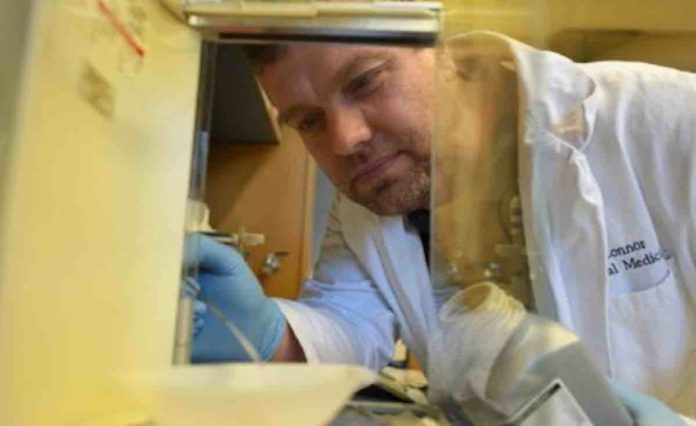
A daily dose of baking soda may help reduce the destructive inflammation of autoimmune diseases like rheumatoid arthritis, scientists say.
They have some of the first evidence of how the cheap, over-the-counter antacid can encourage our spleen to promote an anti-inflammatory environment that could be therapeutic in the face of inflammatory disease, Medical College of Georgia scientists report in the Journal of Immunology.
They have shown that when rats or healthy people drink a solution of baking soda, or sodium bicarbonate, it becomes a trigger for the stomach to make more acid that can digest the next meal.
It also gets little-studied mesothelial cells sitting on the spleen to tell the fist-sized organ that there’s no need to mount a protective immune response.
RELATED: The 7 Mental Health Benefits of Running That You May Not Know About
Dr. Paul O’Connor, who is a renal physiologist and the study’s corresponding author, says that it’s sort of reassuring our organs that “it’s most likely a hamburger, not a bacterial infection.”
The mesothelial cells that line body cavities, like the one that contains our digestive tract, cover the exterior of our organs to quite literally keep them from rubbing together. About a decade ago, it was found that these cells also provide another level of protection; they have little fingers, called microvilli, that sense the environment, and warn the organs they cover that there is an invader and an immune response is needed.
Drinking baking soda, the MCG scientists think, tells the spleen – which is part of the immune system – to go easy on the immune response.
CHECK OUT: 10 Amazing Things You Can Learn From Your Poop
“Certainly drinking bicarbonate affects the spleen and we think it’s through the mesothelial cells,” O’Connor says.
The conversation, which occurs with the help of the chemical messenger acetylcholine, appears to promote a landscape that shifts against inflammation, they report.
In the spleen, as well as the blood and kidneys, they found after drinking water with baking soda for two weeks, the population of immune cells called macrophages, shifted from primarily those that promote inflammation, called M1, to those that reduce it, called M2. Macrophages, perhaps best known for their ability to consume…










